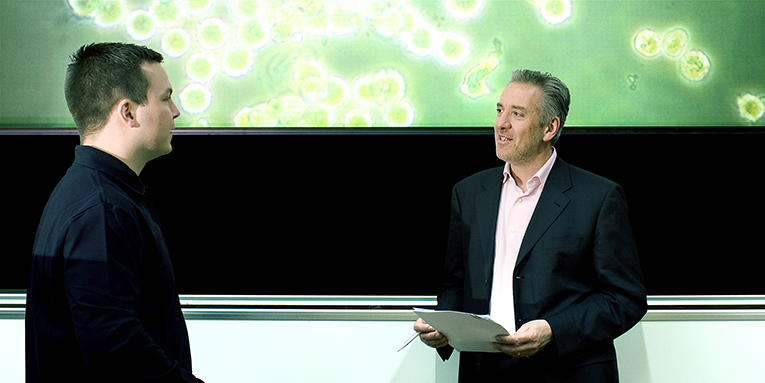The challenges
Challenges throughout the cultivation
Animal cell culture presents many positive aspects, however, some emphasis needs to be placed on technical complexities. The strict aseptic conditions under which culture techniques have to be conducted and the fact that mammalian cells do not have a protective cell wall (sensitivity to shear forces and centrifugation) require a certain level of skill and understanding in order to face the problems that may arise throughout the cultivation. The more complex genome, metabolism, regulation and cell cycle, and the much longer generation times than those observed in microorganisms are also some very crucial aspects of mammalian cell culture.
The stability of the genotype represents a prerequisite either for reproducible cultivation or production processes based on animal cell culture. Therefore, only the identification of unknown selection pressures that come from poorly defined and controlled culture variables, and negatively affect the stability of the cellular genome can lead to a homogeneous, genetically more stable cell culture process. In order to attain this, both the refinement of the culture method and the definition of the micro-environmental requirements of the cells are considered essential to control and overcome selection pressures within the cell population.
Addressing the challenges
Understanding cellular requirements
The activities of Cell Culture Technologies focus on the understanding of the cellular needs and the design of a convenient culture environment. The recognition of the nutritional and physicochemical requirements of cultured cells and the design of a correct minimal culture micro-environment to suit the cellular needs during proliferation, are key elements to achieving a more extended control over the entire culture process.
The study of cellular metabolism and cell-cell interactions suggests that the experiments are to be carried out in a culture milieu free of interferences by undefined and not strictly reproducible medium supplements, e.g. a physico-chemically defined minimal culture medium. The latter is exclusively prepared from pharmaceutical-grade small molecule chemicals and high-purity tissue culture water.

